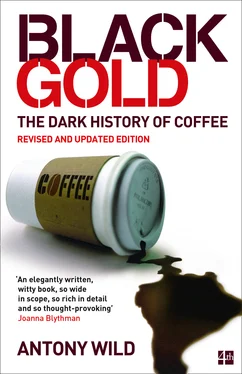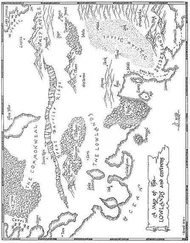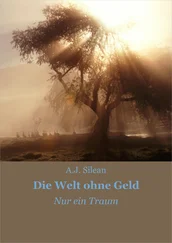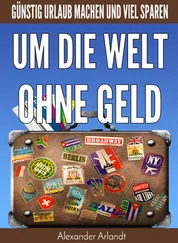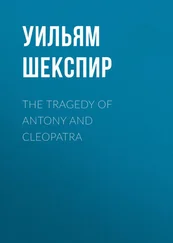It’s been a long road since my initial impulse purchase in Yorkshire back in 1991, and the end is not yet in sight, but consciousness about kopi luwak has certainly been raised, and that can only be for the good – eventually. In the meantime, this coffee has acquired a new name in academic circles: apparently, it’s an ‘excremental commodity’. So at least it can now be talked about without embarrassment at polite dinner parties.
A month or two ago I met an Australian coffee planter in Sri Lanka who has a hundred hectares under cultivation, high in the central mountains adjoining a forest. I told him about my involvement with kopi luwak. ‘Luwaks?’ he said, ‘Got hundreds of those little blighters running around my plantation. My guys have gathered up 40 kilos of their droppings. Dunno what to do with them!’
‘Do nothing,’ I advised him. ‘The game ain’t worth the candle.’
NOTE ON THIS NEW EDITION:
The opening chapter of this book concerns the deep coffee crisis of the early noughties. While this dire phase has thankfully passed, the wider observations made remain relevant today, and there is nothing to prevent such a crisis arising again, as indeed appears to be happening right at this moment, in a less severe incarnation. I therefore have not attempted to update the statistics I used previously to reflect current market conditions.
I see I have been bitter. But what would you think of someone who could write such things without bitterness?
‘MULTATULI’, Max Havelaar, or the Coffee Auctions of the Dutch Trading Company (1860)
The catastrophically low price currently paid to the producers of coffee is leading to the largest enforced global lay-off of workers in history. Nonetheless, it is remarkable how little agreement there is concerning the numbers of people who are dependent on coffee growing for their livelihood. The Wall Street Journal , a newspaper not given to exaggeration in matters of business, estimated that some 125 million people depended on coffee in 2002. ActionAid claimed 60 million, Fair Trade 100 million. The World Bank has calculated that there are 25 million small producers in developing countries who depend on coffee as their sole source of income, each supporting an average of five family members: this is the equivalent of the entire population of Japan, the world’s eighth most populous country. Furthermore, the Bank estimates that a staggering 500 million people globally are involved directly or indirectly in the coffee trade. This figure is echoed by Dow Jones Commodity Services, which also assesses the importance of coffee to developed countries too: they have calculated, inter alia , that 300,000 people work in Italy’s 110,000 coffee shops, serving 70 million cups of espresso per day.
The coffee market in the USA is worth $19 billion annually, with 161 million consumers directly serviced by 150,000 full- or part-time workers. The Specialty Association of America estimates that if everyone from coffee machine mechanics to styrofoam cup makers were accounted for, the figure for those involved in the business would leap to 1.5 million. In Japan, a leading roaster has claimed that over 3 million jobs – 4.5 per cent of the workforce – are directly or indirectly related to coffee. While the industry is keen to stress the importance of coffee, if only to alert politicians to the gravity of the problems affecting it, clearly there is huge international dependence on the trade.
As long as the price that coffee fetches on the world market continues to be lower than the cost of production, smallholders and farmers must subsidize coffee consumers. They cannot do this indefinitely. The result is unemployment and the loss of livelihood on the vast scale commensurate with the numbers previously employed. Thus the World Bank estimates that between the years 2000 and 2002 some 600,000 workers in the coffee industry lost their jobs in Central America alone. This is the equivalent of the entire population of the city of Bristol becoming unemployed. With no sign of a meaningful price recovery, this employment crisis is getting much worse, rapidly and globally. It has started to cause political and social disruption, poverty and privation on an unprecedented level in countries where the national economies are frequently already extremely fragile. There has also been a fundamental shift in the recipients of the coffee trade’s largesse. In 1991 the global coffee market was worth around $30 billion, of which producing countries received $12 billion, or 40 per cent. Current figures suggest that the global revenues from coffee sales are in the region of $55 billion, of which only $7 billion (13 per cent) goes to the exporting nations. Coffee is the world’s most valuable trading commodity after oil, but the share of the coffee trade enjoyed by producers has fallen by two-thirds in ten years, whilst transnational coffee companies have reaped huge windfall profits from the low price that they now need to pay for the commodity. The average price paid to producers of coffee internationally has fallen 80 per cent since their last high in 1997: over the same period, the average retail price of the keenly competitive major US brands has fallen to $2.75 per pound, only 27 per cent less than its peak. The price of instant coffee in the UK, which represents 85 per cent of that market, has fallen by a paltry 5 per cent since the same date. The four multinational roasters that dominate the world coffee trade – Procter & Gamble, Nestlé, Sara Lee, and Phillip Morris account for 40 per cent between them – report record sales and record profits, although all except Sara Lee ($495 million in reported profits from their coffee and tea division) are understandably chary of stating exactly how much is attributable to coffee. Nestlé attributed a significant proportion of its 5.5 per cent half-year growth in sales to August 2003 to its ‘star performers’, instant coffee and bottled water.
Starbucks, a relative newcomer to the international coffee trade, is likewise reaping a huge profit harvest, up 19 per cent in 2003, and adding to its 6000 existing stores worldwide almost daily. The business is regarded as that rare breed, a ‘tastemaker’, a company that successfully creates a new market. Starbucks has repositioned coffee as an ‘affordable luxury’, and has provided a suitably mellow environment for people to indulge in it. The company’s Chairman and Chief Global Strategist, Howard Schultz, is a lean corporate colossus fêted by stock analysts and the business press. He is the ‘author’ of the soft-focus New Age autohagiography entitled Pour Your Heart Into It in which he writes that ‘My ultimate aim … is to reassure people to have the courage to persevere, to keep following their hearts even when others scoff. Don’t be beaten down by naysayers.’ It is unlikely that the smallholder abandoning his coffee plantation in Guatemala for a dismally uncertain future in a city shanty-town would derive any comfort from Schultz’s inspirational message. The price that his coffee achieves in the branded coffee shops of the developed world clearly spells out imbalance and inequity. Starbucks generally buys better coffee than many companies, and consequently pays the higher price by which its Public Relations division sets great store; but it is no coincidence that the company has become one of the prime targets of the anti-globalization movement. It has come to represent the unacceptable face of unfettered capitalism with its combination of modern aspirational marketing techniques and an attritional strategy towards its independent competitors. Crucially, in the eyes of activists, it also has a lead product that is effectively subsidized by the suffering of Third World farmers.
Читать дальше
